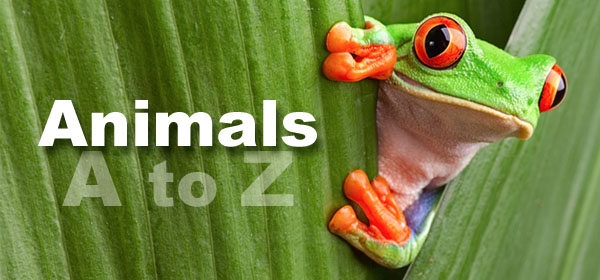My blog this week is in celebration of International Primate Day which is on 1st September. This is an annual event which began in 2005 and celebrated by zoos and charities worldwide.
Its purpose is to highlight the wide and diverse group of primates, covering all species from great apes to lesser apes, marmosets to macaques and bushbabies to lemurs. It also covers and addresses where primates are at risk in the wild, research institutions or any form of endangerment.
Which brings me to my discussion point for my blog this week, primates being kept as pets and the dangers that come with it.
One comment we hear at the zoo fairly often is “wow that monkey is so cute, I want one as a pet” and even though the public are correct in one aspect (the monkeys are very cute) it is not a very good idea to keep a primate as a pet. Primates are not domesticated in the same respect as cats or dogs, this takes hundreds and hundreds of years of selective breeding by humans selecting the best traits to make an animal a companion.
The biggest influence people will see is finding a video clip or pictures online, where primates are dressed in human clothes, being tickled and doing “tricks” but unfortunately these animals are often kept in poor conditions and their basic needs are not met by their main care givers. Unfortunately social media is the biggest platform for misinformation and it sends out a ripple effect almost condoning the act of buying and keeping a primate.
There are an estimated 4,500 primates (apes, monkeys, lemurs, bushbabies and lorises) which are privately owned in the UK. Some of these animals are owned by trained experts however the vast majority are pets, living in people’s homes. Often owned by individuals with nothing more than good intentions and the misguided desire to own a “cool” pet.
The most common primates to be kept are more of the smaller species such as squirrel monkeys and marmosets, some of which are critically endangered in the wild.
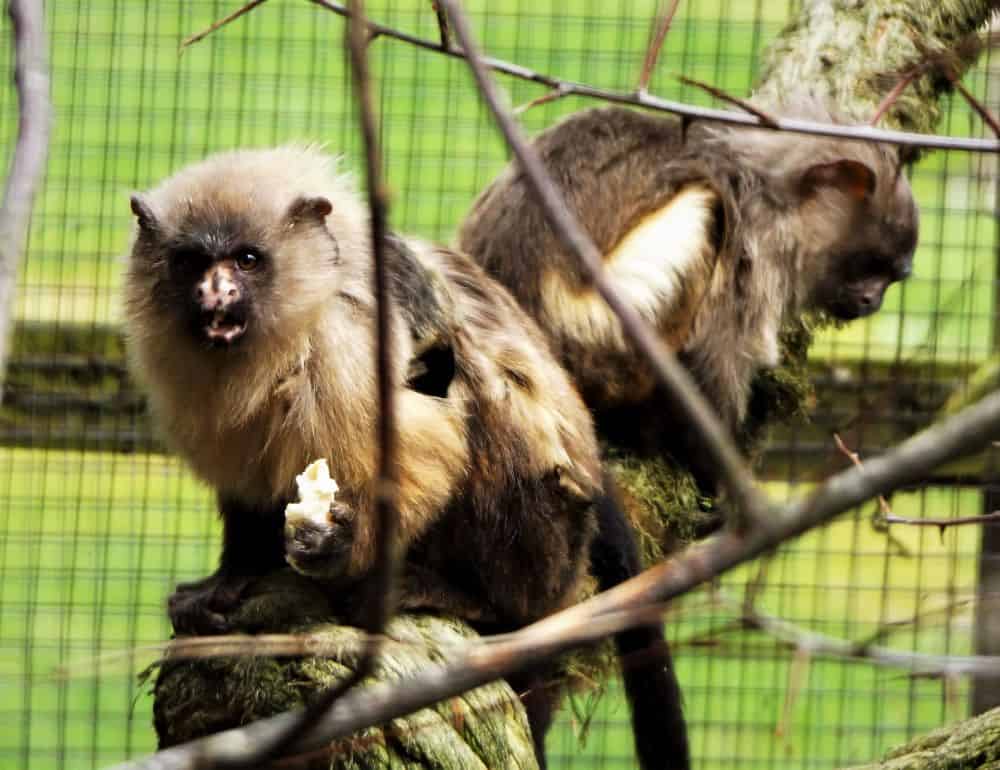
Common Issues
There are several issues that face people who keep primates as pets. The majority of primates are highly social animals and have very complex social structures and therefore keeping them in a home environment, will not be able to replicate or fulfil the social aspect of that animals life and this can lead to behavioural issues such as aggression and cause repetitive negative behaviours.
Another issue is diet and nutritional requirements. Every primate is different and each species has their own specialised diet (and if needed supplements) and if this is not met this can make the animal very poorly, affecting them in many ways from dental and gum disease, skin conditions, bone and structural weakness to digestive problems.
All of this combined makes a very expensive trip to the vets which is also another common problem that people are not usually aware of when buying primates, the cost!! Primates are very expensive to buy initially making sure they have a correct and sufficient enclosure and keeping in mind buying food, supplements and regular visits to the vets and routine treatments will all add up and in most cases people cannot afford them. All of these issues combined unfortunately result in the animal being re-homed, abandoned or in worst case scenarios (if the animal is too aggressive and has bitten someone) can be euthanized.
Despite being an endangered species, approximately 300 barbary macaque infants are forcibly taken from their families in the wild each year for the pet trade. Many of these are sold internationally while others are used as props for tourist photos in their own ranges.
We are home to six barbary macaques, Momo, Memouna, Jo, Dahlia, Hasna and Hayatt. They all came to us from Stichting AAP, an exotic animal rescue and rehabilitation centre in the Netherlands. Although they all arrived from different sources most were taken out of the illegal pet trade with one being rescued from a park in Paris, suspected of being abandoned.
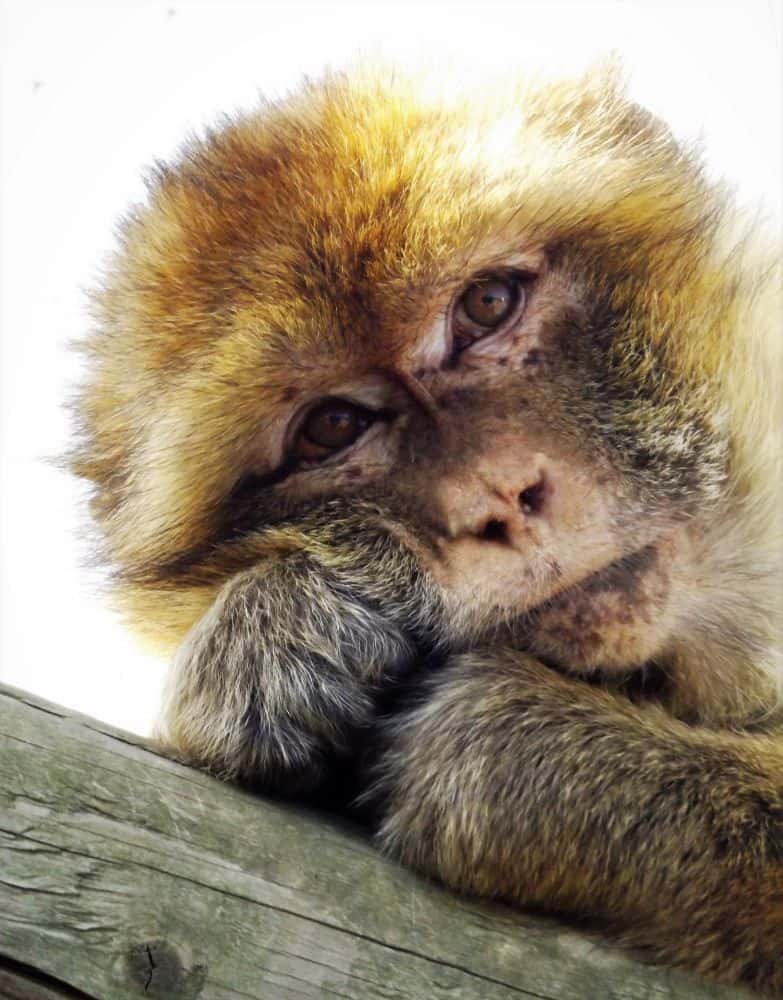
Three of our common squirrel monkeys, Bilbo, Frodo and Samwise, also found their home here at WWP after their previous home, a pet monkey breeding facility, was shut down.
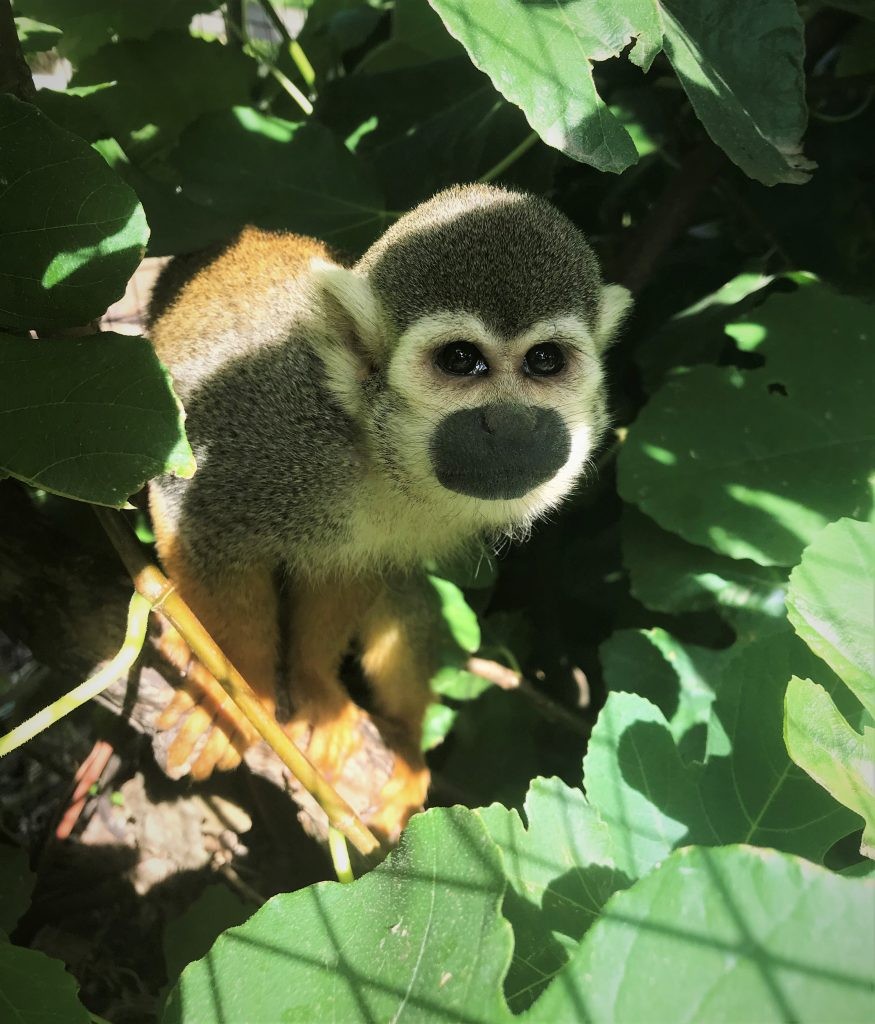
Legislation
So with all that in mind you would think is it even legal to keep a primate as a pet? Sadly the answer is yes! It is still legal to keep primates as pets in the UK – regardless of how endangered they are or how dangerous they may be.
There is some legislation that covers keeping primates as pets such as the Animal Welfare Act of 2006 and Defra’s (Department of Environment, Food and Rural Affairs) Code of Practice for the Welfare of Privately Kept Primates also known as the Primate code 2010.
However, even though these codes are in place they are extremely vague and do not really carry much of a punishment if you are in breach of the acts. The act, which states that animal owners must prevent “unnecessary suffering” and must take “all reasonable steps to meet their animal’s needs”, is extremely difficult to enforce as most pet primates in the UK are kept in secret.
The primate code 2010 is basically a guideline on the welfare and management needs of the animals but is open to broad speculation and a breach of its provisions is not actually an offence, however if it has been ignored then it could be used as evidence in court in animal welfare cases.
Another piece of legislation that protects some animals is the Dangerous Wild Animals Act (1976), which lists more “dangerous” species of primates such as capuchins, but does not cover the more commonly kept marmosets (which is estimated to be around 80% of pet primates in the UK).
CITES (Convention on International Trade of Wild Fauna and Flora) is also another piece of legislation that basically covers international trade of wild animals and plants does not threaten their survival. For example the critically endangered Cotton Top Tamarin is listed under Appendix 1 on CITES so international trade of that animal is banned. Unfortunately with the high demand of wanting these animals as pets, the supply cannot be met fast enough so this encourages more illegal activity such as poaching and smuggling, which has a devastating effect on endangered populations in the wild.
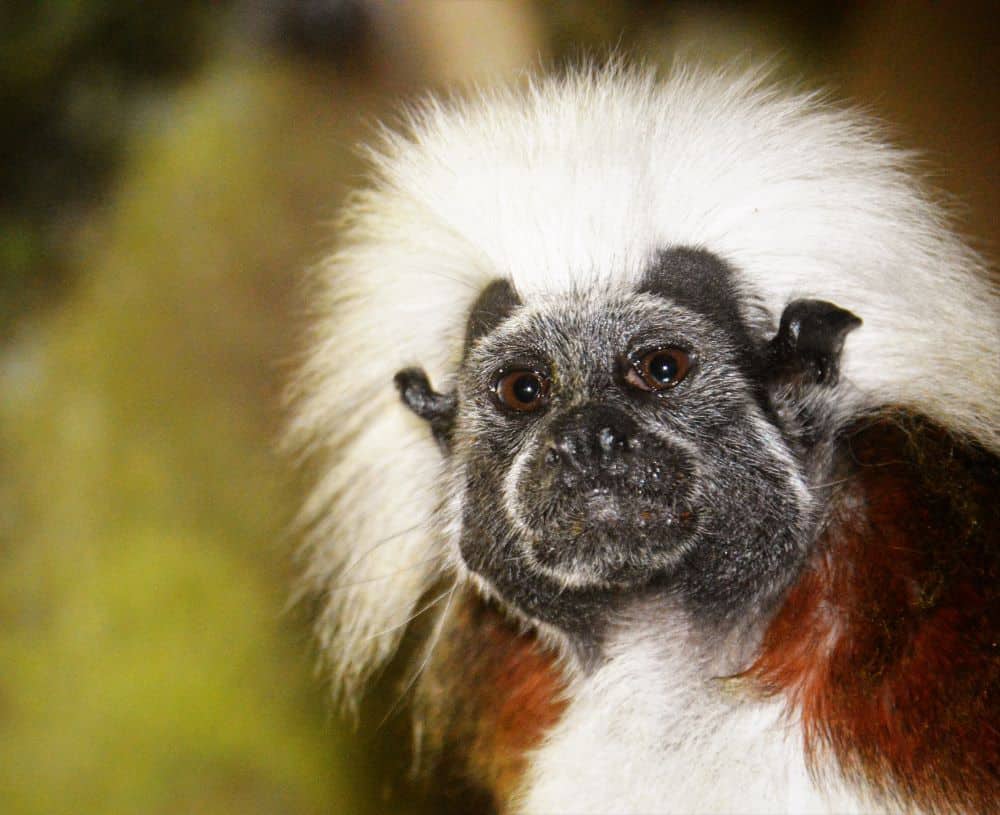
With little awareness surrounding laws and a general lack of consequences for those failing to comply with regulations, many feel that the law should change and that a total ban on the keeping of pet primates in the UK should be introduced. Gaining more information and education from zoos and rescue sanctuaries will highlight the issues of the bad decisions of keeping these wonderful animals in a not so suitable environment. Seeing these animals thrive in a more natural setting is much more satisfying to witness than hearing of the horrors of keeping primates as pets!
